Privacy Overview
This website uses cookies so that we can provide you with the best user experience possible. Cookie information is stored in your browser and performs functions such as recognising you when you return to our website and helping our team to understand which sections of the website you find most interesting and useful.

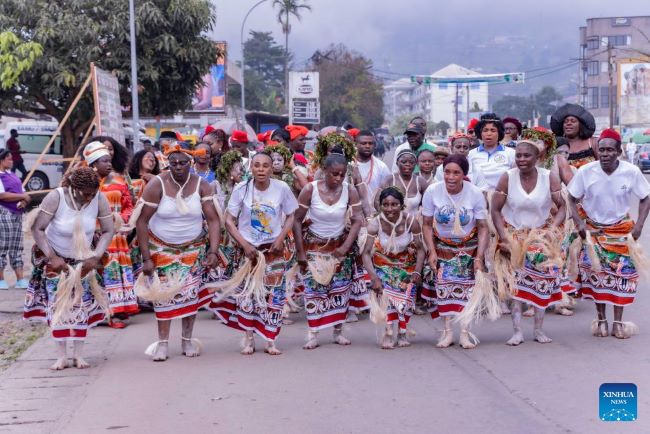

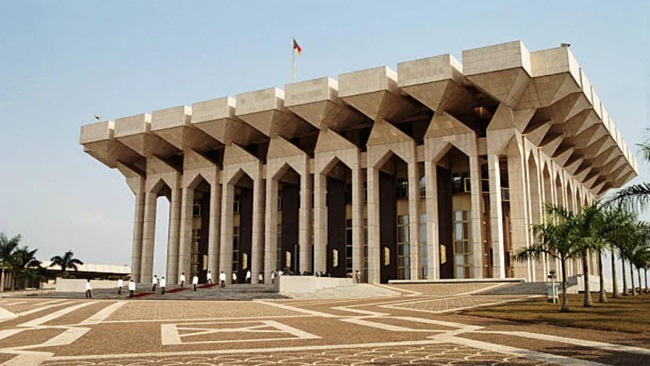
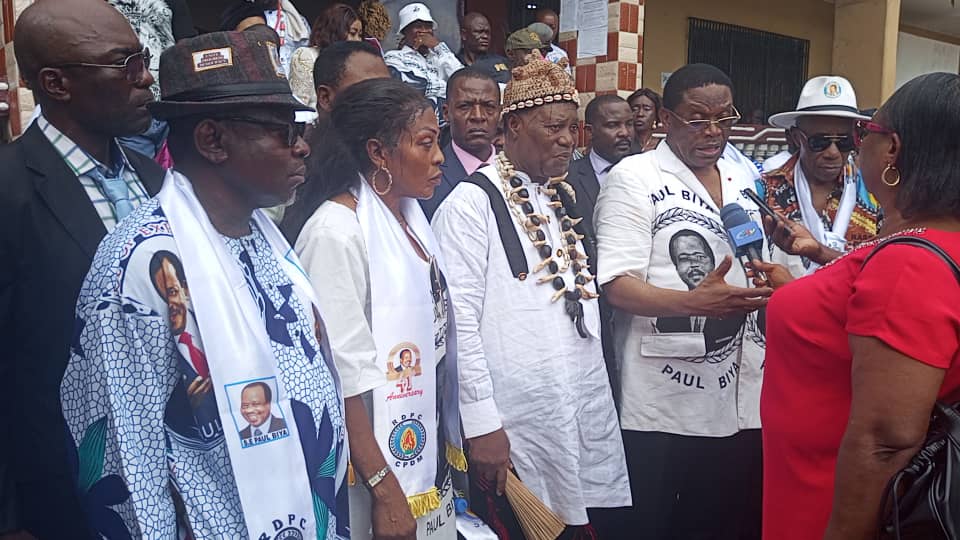





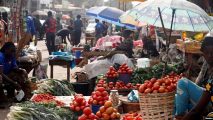



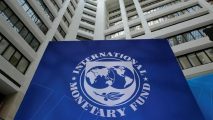



12, October 2019
Southern Cameroons Crisis: World Leaders Call on Yaounde to Free Abdulkarim Ali 0
The arrest and detention of Cameroon’s best-known Muslim scholar of the Bible, Abdulkarim Ali, has both outraged and united the world’s most important religious leaders. Pope Francis, leader of the world’s 1.2 billion Catholics, the Archbishop of Canterbury and leader of the Church of England Justin Welby, and Sheikh Abdullah Awad Al Juhany, one of the Imams of the Grand Mosque in Mecca (Saudi Arabia), united on Thursday in calling for the unconditional release of Abdulkarim Ali.
Last September 25, Abdulkarim Ali was seized by armed plain clothes men, reportedly Cameroonian gendarme officers. The abduction lasted a few minutes and eyewitnesses, including security guards manning the entrance to the Swiss embassy in Cameroon’s capital, Yaounde, say Ali was roughed up and bundled into a waiting car which immediately sped off.
Back from a recent trip to Switzerland, Ali had stopped by to brief Pietro Lazzeri, the Swiss Ambassador to Cameroon. Last June 27, Switzerland’s federal ministry of foreign affairs officially announced it was mediating between the Cameroon government and pro-independence movements campaigning for the breakaway Republic of Ambazonia in the country’s two English-speaking regions.
Ali’s apparent crime – he has not yet been charged – is the fact that he participated in meetings organized by the Swiss to help Ambazonian leaders prepare for the negotiations. Victim of Religious Persecution The arrest and detention has infuriated the Vatican and the Church of England. Both have said they are gravely concerned by reports that Ali was beaten at the time of his arrest, has been tortured in detention and is being starved.
Reportedly ill at the time of his arrest, Ali has been denied access to a doctor. Access to his lawyers and members of his family has also been restricted. Sheikh Abdullah Award Al Junaby slammed the abuse Ali has suffered in detention, including efforts by gendarmes to prevent him from praying. “This is unacceptable”, he told Al-Arab News Channel. Staff at the Grand Mosque in Mecca say they have been flooded by complaints from Muslims in Cameroon, notably from Bamenda, the provincial town where Ali occasionally serves as a preacher/teacher.
Cameroonian gendarmes have allegedly also tried to force Ali to eat food not prepared in keeping with Muslim standards.
Is it Genocide?
This is “outrageous, shocking, and unacceptable”, former Nigerian President Olusegun Obasanjo has said of the abuse. Relations between Cameroon and the pair of Archbishop Welby and ex-Nigerian leader Olusegun Obasanjo have deteriorated considerably since last August. Without the courtesy of advance warning, Cameroonian officials cancelled a trip the two were about to take to visit the country.
Both Obasanjo and Archbishop Welby were visiting to show support for the mediation process initiated by the Swiss and supported by, among others, the USA, UK, UN, EU, Canada, the African Union and Commonwealth. Obasanjo earlier this year reportedly used the word genocide in describing the violence unfolding in Ambazonia. Yaounde did not take kindly to Obasanjo using the G-word.
President Paul Bya, 86, in power since 1982, has dismissed the charges of genocide, describing them as “ridiculous”. Biya’s supporters agree with him. A one-time campaigner for a return to federalism in Cameroon, Barrister Agbor Balla, who runs a human rights organization, says it cannot be genocide. On a recent television interview, Agbor Balla said if it were genocide, the victims (Ambazonians) would not run for shelter in French-speaking Cameroon (home of the “genocidaires”).
Botched Decolonization to Blame
The breakaway Republic of Ambazonia is presented as the successor of the United Nations British Trusteeship Territory of Southern Cameroons which gained independence on 1st October 1961. Nineteen months earlier, the Republic of Cameroon had won independence from France on 1st October 1960 within international boundaries that did not include Southern Cameroons.
The two Cameroons were supposed to form a union of two states, equal in status. Things did not turn out as anticipated.. In violation of the then constitution, the predominantly French-speaking administration rolled back autonomy for Southern Cameroons notably after it abolished the two-state federation in 1972. In 1984, as Biya probably now sees, he went one step too far, when he simply reverted (by presidential decree) to the name of the French-speaking part before independence.
Ambazonians argue that the move constituted secession from any union by the French-speaking part. It left them with no choice, they argue, than to restore the independence and sovereignty of Southern Cameroons. However, when they issued a unilateral Declaration of Independence Restored on 1st October 2017, Biya responded with shocking violence followed by a declaration of war on 30th November 2017.
The erstwhile peaceful movements hastily formed armed wings which have been battling government forces in hit-and-run guerrilla warfare for nearly two years. No fewer than 4,000 people have been killed. Implementation of a scorched earth policy has seen over 300 villages burnt to the ground by Cameroonian forces. Nearly 2..5 million have been impacted with about 600,000 of them internally displaced in a conflict which the United Nations describes as “Africa’s biggest mass displacement conflict”.
Ali Left Starving, Dehydrated
Ali’s kidnapping or abduction style arrest outside the Swiss embassy is a frequent occurrence. Over 5,000 suspected Ambazonian supporters have been picked up in similar style in Ambazonia or in neighboring Nigeria and deported to prisons in the French-speaking part of the country. In the jails, dungeons and prisons, including private prisons where those arrested are held, torture is rampant.
Eyewitnesses say gendarmes withheld water from Ali in the hope of breaking his will. A palette of water brought to him by his lawyers was held up from reaching him by gendarmes, according to several accounts including one by the Bonn-based Cameroonian journalist Mimi Mefo. “Since you are willing to die, why do you want to drink water?” gendarmes reportedly mocked Ali when he pleaded for water at the height of exhaustion and dehydration earlier this week.
Ambazonians in the United States, Canada, Switzerland and Germany have started petitions calling for action on the part of the leaders of these countries and their parliaments. Across Europe, one effort is gathering signatures for a protest to be delivered to the European Union Parliament and Ueli Maurer, who holds the rotating Swiss presidency this year. Reporters at the Swiss newspaper Neue Zurcher Zeitung, who have seen a draft, said the petition is very critical of the fact that Switzerland has not openly and aggressively called for Ali’s release.
Another petition started by a Bonn-based Ali family member is being finalized for the attention of German Chancellor Angela Merkel and the German Parliament. Several members of the U.S. Congress have already been bombarded by thousands of online petitions and phone calls asking Washington to call for Ali’s release.
Water on a Duck’s Back
The Swiss embassy in Yaounde has called, albeit quietly, for his release during several meetings with Cameroonian officials. The Swiss ambassador has notably raised the issue with Cameroon’s Prime Minister Dion Ngute and the Secretary General at the Presidency Ferdinand Ngoh Ngoh. If Yaounde is moving on anything, it must be too sluggishly to be even visible. It took until Wednesday night for Ali’s spouse to be finally allowed to briefly visit with him. She traveled over 350 miles to bring him his first home-cooked meal at a detention facility where most political dissidents, out of fear of being poisoned, regularly skip official meals.
Growing Anger
Anger is growing over the abduction and continued detention. United Nations officials in Yaounde have protested the detention and called for his immediate release on behalf of Secretary General Antonio Guterres. “People are free to hold opinions that are different from those of their government, to mobilize other people for legitimate purposes and to protest against political decisions,” said UN Human Rights in a tweet on Thursday. “These are neither crimes nor terrorism. They are basic Human Rights,” the rights body added.
The Biya government has charged a majority of those arrested in connection with the campaign for independence with terrorism, secession and rebellion; charges which carry life in prison terms. The International Committee of the Red Cross in Yaounde has expressed frustration at not being allowed to see Ali. In the Old Town neighborhood of Bamenda (Ambazonia) where Ali serves part-time as an imam/teacher, anti-government leaflets have been disseminated. They call for nationwide protests by Muslims on a date yet to be determined
Many fear that members of the Islamic extremist group Boko Haram based in neighboring Nigeria could use the detention as a pretext to ignite a new wave of suicide attacks, notably in the northern parts of the country. Ambazonian self-defense groups are threatening to take the war across the border to into the French-speaking part unless Ali is released. It is unclear if Biya, who is traveling this week in Lyons, France, has been briefed on the arrest and ongoing detention. Many supporters of Ali were disappointed when a decree ending criminal proceedings against 333 detainees before the Yaounde Military Tribunal did not include Ali’s name.
Critics of the Swiss mediation have seized on the arrest and detention to claim that Switzerland lacks the leverage to enforce an outcome. Speculation is rife across some Ambazonian circles that the special unit that arrested Ali intended to treat him the same way Jamal Khashoggi, the Saudi journalist of the Washington Post, was assassinated at the Saudi embassy in Istanbul, Turkey. Yaounde spent last week giving diplomats calling for Ali’s release the run around. Biya officials put off any discussions of Ali’s release on claims that they were too busy with the Major National Dialogue held in the capital last week. That excuse may not work well anymore as Abdulkarim Ali enters a third week of arbitrary arrest and detention without charge..
Reporting by AP, Reuters, AFP, Al Jazeera and Vatican Radio